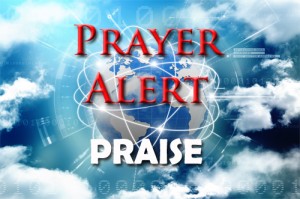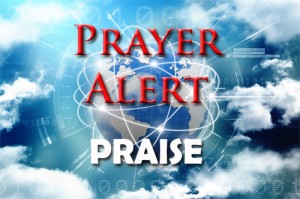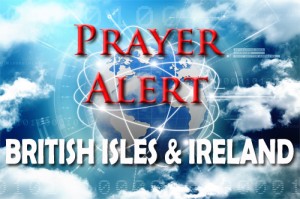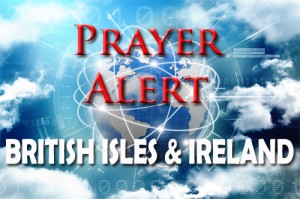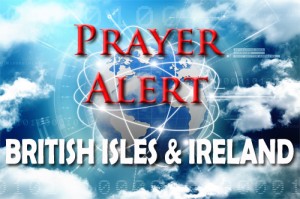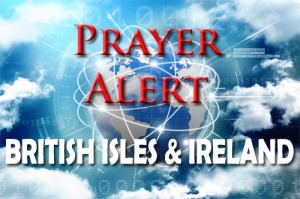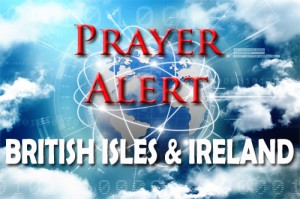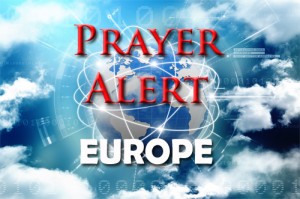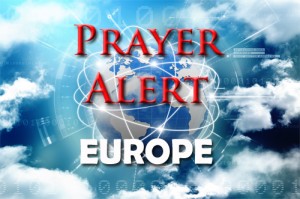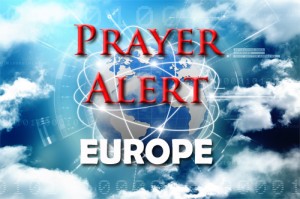
David Fletcher
David Fletcher is Prayer Alert’s Editor.
He is part of a voluntary team who research, proof-read and publish Prayer Alert each week.
If you would like to make a donation towards our running costs, please click here.
Recently the BBC has received much criticism for its Christian content, but it has announced a range of new and returning religious programmes for Easter. The line-up of innovative documentaries, music, reflection and worship to mark this cornerstone of Christian faith include an emotional and personal journey to the Holy Land by Fern Britton, Franciscan Friars in Bradford, live worship from Hereford Cathedral, Revd Kate Bottley and the London Community Gospel Choir, and a Good Friday meditation with Revd Lucy Winkett. Such a wide range of programming across television and radio reflects the sanctity of Eastertide and the celebration of the resurrection.
Fundraisers for the Manchester Passion Play had planned to offer ‘The Full Crucifixion Experience’ for £750 to donors willing to help fund the £50,000 event. Members of the public were going to be hoisted onto a cross outside the city's cathedral, under one of the ideas posted on a crowdfunding website used by the organising committee to raise £8,000. The idea was branded ‘blasphemous’ and dropped when clergy found out, but the Passion play went ahead. It involved local schools, music and drama. Several thousand watched the event on stage and on big screens last Saturday, and it will be televised by the BBC's Songs of Praise.
‘I say to you, lift up your eyes and look at the fields, for they are already white for harvest.’ (John 4:35)
Father, we thank You for every promise you have given for revival and awakening, and for those who have already come to know You in this season. We thank You for Your anointing upon each one of us - to preach good tidings to the poor - to heal the broken hearted - to proclaim liberty to the captives - and the opening of the prison to those who are bound. (Is.61:1) This Easter season, in Jesus’ Name, we call forth salvations, Jesus-centered conversations, prophetic encounters, and we declare our nation will not miss the day of your visitation. Father, even as you are restoring many ministries to the church, we pray for a new season of evangelism. We pray for release for those who will speak to individuals and those who will speak to the crowds.
As Jesus died on the cross, the thirty-foot curtain in the temple, which separated the ordinary people from the very presence of God, was torn in two. It’s a beautiful picture of God the Father saying ‘the way to me is now open’. He is no longer residing in a stone temple but in our hearts if we invite him in.
(written by Andy Hawthorne, The Message Trust)
Many children believe the Easter story because it's how their parents raised them, but they may not grasp the meaning of Easter. Others only know the secular Easter- eggs, bunnies, etc. Question: how do we help those who don't understand in their hearts that Jesus is the reason for this season? Answer:play a game with an Easter theme. Look around for crosses on necklaces, hospitals, churches and ask, ‘What do you think happened on that cross to make it so important?’ Say that Jesus happened on that cross. Because of this, his love transforms everything it touches. Or play 'Connect the Dots' with prophecy. Explain that everything about Easter was prophesied before it happened! Help children connect the dots of Messiah's long-foretold Passion (a list of prophecies can be found at: ). Then read the Easter story from a children's Bible.
Bishop Donald Allister’s report on financial problems at Peterborough Cathedral has led the Archbishops of Canterbury and York to commission a working group to review the governance of English cathedrals. The group has been established at a time when a number of cathedrals are facing financial and other difficulties. One of its tasks will be to advise the Archbishops’ Council on whether the Cathedrals Measure – the 1999 legislation that sets out the regulations that cathedrals must follow in their administration – needs to be revised. Bishop Allister made 20 recommendations regarding the cathedral’s management; and he offered ‘reflections’ to the House of Bishops and the national church institutions. He said that he believes that there are lessons to be learned from the Peterborough situation by the Archbishops’ Council, the House of Bishops, the General Synod, and the Deans’ Conference.
This Easter and over the coming months there will be many outreach services, and conferences to encourage the people of God to move on in their faith. Jesus said that one day every nation would not only hear the gospel but be transformed by it. Spring Harvest, New Wine, Hillsong, Creationfest, Newday, Big Church Day Out and Soul Survivor are just a few of the many events happening in showgrounds, churches, country estates, and campsites this year. Pray for every event to be full to overflowing, for God to expand people’s vision of the scope of the gospel, and for renewed and empowered people to leave the events and shine the light of Christ into every area of the lives of those in their communities. Pray for millions of new Christians to be birthed this year across our nation.
In Estonia, Easter has many names: for example Ületõusmispüha (resurrection), Lihavõtted (meat-taking holiday, marking the end of Lent), and Munadepüha (egg holiday). Easter Sunday is celebrated with a long lunch, egg painting, and an Easter egg hunt. Decorated eggs are placed in a basket as a centrepiece for the meal table. After lunch is an egg-knocking competition, creating a new champion each year. Competitors tap their egg against their opponent’s, and the shell that doesn't crack is the winner! Easter customs, like egg-knocking and egg-rolling (with the same aims as egg-knocking), come from old folk traditions. The Joshua Project describes Estonia as non-religious.
Spring cleaning (wiosenne porządki) is associated with the beginning of Lent. On Ash Wednesday believers have their heads marked with ash at a church service; on Palm Sunday they prepare special palms to take to church for a blessing. The blessed palms are kept in the house for the year. Tradition says they protect the household from evil. The following year they are collected and burnt outside the church to provide the ash for Ash Wednesday. On Holy Saturday every household prepares an Easter basket (święconka) full of Easter breakfast foods. The baskets are taken to the church to be blessed, and the contents eaten the following morning. Easter breakfast is the most celebrated Easter meal in Polish culture, dating back to the 7th century. Before the breakfast begins, families share Easter eggs with each other, wishing their relatives all the best.
Easter is celebrated later because the Russian Orthodox church uses the old Julian calendar. On Holy Saturday churches hold night services and organise religious processions around churches. By that time, kulich, the traditional holiday baking symbolising the body of Christ, has already been baked and Easter eggs painted. The morning starts with visiting neighbours and giving Easter eggs. The common phrase on that day is, Khristos voskres! (Christ is risen!), followed by Voistinu voskres (Truly he is risen!) followed by the kiss of peace (triple kissing). Easter is the day of abundant food after the ‘Great Lent.’ A Russian tradition is to deliver gifts to poor families, distant relatives, orphanages, hospitals, prisons and beggars. They say that from Easter to the Ascension Christ, with the Apostles, travels the earth testing everyone for mercy and kindnesses.

